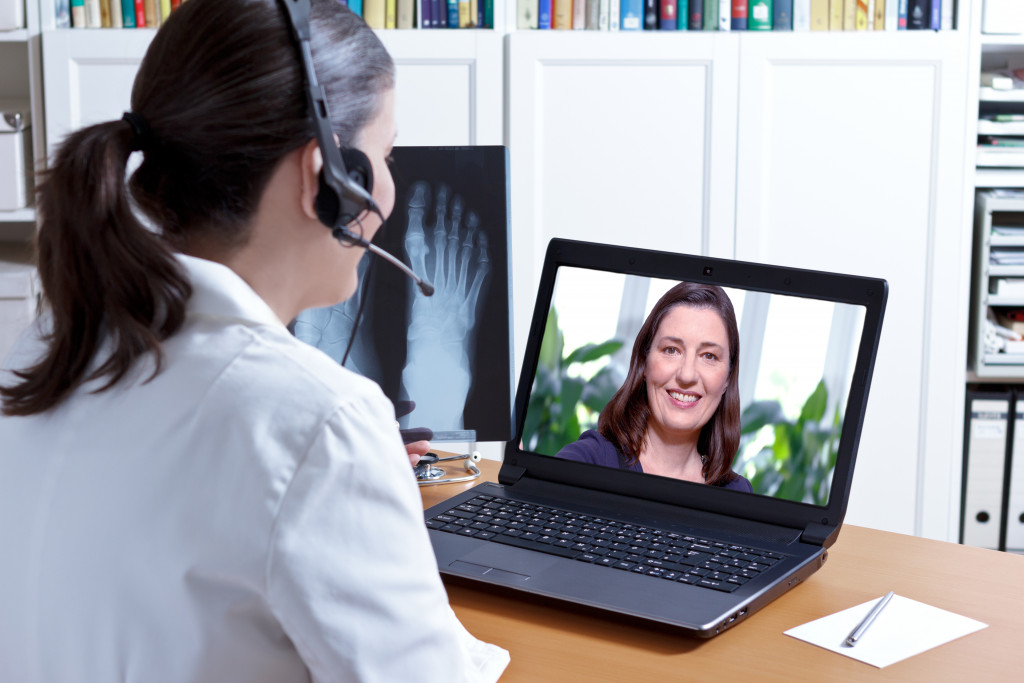Disclaimer: This website provides health information for educational purposes only and is not a substitute for professional medical advice, diagnosis, or treatment. Always seek the guidance of a qualified healthcare provider with any questions you may have.
Technology has changed the world of medicine. It may not be what you were trained to do, but it is how patients expect you to care for them now and in the future. This article will explore how technology can help your medical practice work better and more efficiently so that you can focus on patient care.
How to Use Digital Technology in Your Medical Practice
1. Create a website.
That is the first way to use technology in your medical practice. A website will allow you to show off your services, post office hours, and even take appointments. You can also use a website to post articles and tips on staying healthy.
2. Ensure that your website ranks high on search engines.
Get SEO services from a reputable company to make your website rank high. That will help you draw in more patients searching for medical services online.
3. Use social media to connect with patients and market your services.
Social media is a great way to connect with patients and potential patients. You can use it to post office hours, information about your services, and articles about health and wellness. You can also use social media to run marketing campaigns to attract new patients.
4. Use text messaging and email to stay in touch with patients.
Text messaging and email are excellent ways to stay in touch with patients, remind them of upcoming appointments, and follow up on care instructions. You can also use text messaging to answer simple questions that patients may have about their health and email to send them educational materials about their health condition or general tips on staying healthy.
5. Use a patient portal to allow patients to access their medical records and make appointments online.
A patient portal is a great way to give patients 24/7 access to their medical records and enable them to set appointments online. That can save you time in the office and make it easier for patients to get their care.
7. Use telemedicine to see patients remotely.
Telemedicine is a great way to see patients who cannot come into the office. You can do this via video chat or over the phone. That is a great way to provide care to homebound patients or live in rural areas.
8. Use an electronic health record (EHR) system to manage patient records.
An EHR system can help you keep track of appointments, medications, and lab results. It can also help you generate reports and analytics to see how your practice is doing.
9. Use practice management software to schedule appointments and manage billing.
Practice management software can help you keep track of patients, appointments, and payments. It can also help you streamline your office operations.
10. Use a customer relationship management (CRM) system to manage patient relationships.
A CRM system can help you keep track of contact information, appointments, and payments. It can also help you create marketing campaigns and track their results.

11. Use online bill payments to allow patients to pay their bills online.
Online bill pay is a great way to allow patients to pay their bills online. That can make it more convenient for patients.
12. Use a secure messaging system to send confidential messages to patients.
With a secure messaging system, you can send confidential messages to patients without worries.
13. Use two-factor authentication (2FA) to protect patient data.
Two-factor authentication gives you and your patients additional security by requiring a second factor, such as a code sent to a mobile phone, in addition to a password.
14. Use encryption to protect patient data.
Encryption is a great way to protect patient data. That ensures that only authorized users can access the data and that it remains confidential.
15. Use a secure server to host patient data.
A secure server is a great way to host patient data. That ensures that only authorized users can access the data and that it remains confidential.
16. Use data backups to protect patient data.
Data backups ensure that if the primary copy of the data is lost, a backup is available.
17. Use a password manager to help staff manage passwords.
A password manager is a great way to help you and your staff manage passwords. That can help you keep track of passwords and generate strong passwords.
18. Use security awareness training to educate staff on security best practices.
Security awareness training can help ensure that you are all on the same page regarding data security.
20. Use a security audit to assess the security of your practice.
A security audit is a great way to assess the security of your practice. That can help you identify potential vulnerabilities and take steps to mitigate them.
Take Your Medical Practice to the Future
If you want to be a doctor in the digital age, then you must stay informed on how technology is changing your profession. Use these tips to help you use digital technology in your medical practice. You’ll be able to provide better care for your patients and run a more efficient practice.




